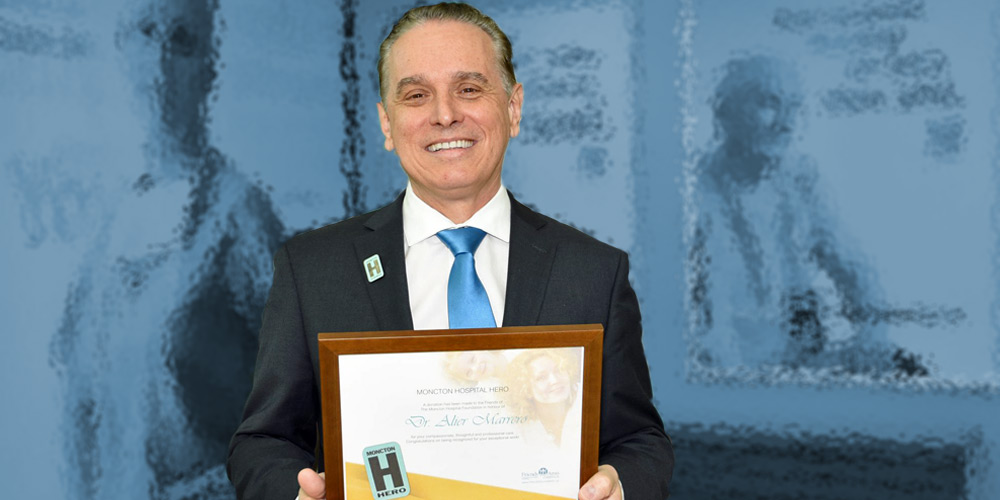
The neurologist at the centre of an apparent medical mystery in New Brunswick says he has now seen over 200 patients who have presented with neurodegenerative symptoms of unknown origin.
“I do see the numbers growing, and I see the need to do something now and to start understanding and providing answers,” Dr. Alier Marrero tells CANADALAND in a rare interview.
In letters to sent to public health officials as recently as this past winter, Dr. Marrero had previously flagged roughly 150 cases that he believed were part of this pattern. The government of New Brunswick, however, has rejected the idea that there is a cluster of illness, finding insufficient commonality amongst the original 48 case files sent their way.
But echoing concerns that he and his patients’ families have previously expressed, Dr. Marrero says the province still ought to study possible environmental causes — including industrial herbicides, exposure to which he says has been found in the “great majority” of his patients.
His interview with Sarah Lawrynuik forms the core of this week’s CANADALAND, which looks at what’s unfolded since we last checked in on the situation in New Brunswick:
These are edited excerpts from the interview:
…why he’s speaking up now:
“I feel that this issue cannot be [buried] again and wait more, because I do see the numbers growing, and I see the need to do something now and to start understanding and providing answers. In any case, for the majority of patients, they feel they have not been provided with answers that explain their condition in an appropriate manner and prevent them from getting worse. And so in that sense, I am their advocate and I am their doctor, so it’s my duty to speak.”
…tests finding exposures to certain herbicides:
“The majority of my patients, first of all, the great majority of my patients, show exposure well beyond detection levels to one or more of these substances [glyphosate, AMPA, glufosinate, and 3-MPPA] and sometimes very high. I’m talking people who are not professionally exposed. They are not working in these industries in any way, and this is the winter time. And this happens to be concentrated in some communities or areas more than others.”
…why he’s sure that something is going on:
“If you go through the studies, international studies, you don’t find this number of young-onset cases of neurodegeneration, other than in an epidemic condition, like, for instance, it happened in the United Kingdom with the variant CJD.”
…efforts to discredit him:
“In the great majority of these cases, I’m seldom the only specialist who saw them. And the documents I’m providing to public health right now prove that, because they request [information about] what doctors they see, when they see them, and so on and so forth, what tests they have taken. By making me the point, the attention is distracted away from the patients and communities. They deserve to be the centre, not the doctor. They have to be provided with answers.”
…what he’d like the province to do:
“What I would like to see happening is something like what we had prior to May 2021: an extensive, open collaboration between experts in different fields trying to understand and provide answers to a growing issue that is very significant and is affecting these populations and these younger cases and these communities in a hard way. So that’s what I’d like to have, I call it to have adults in the room: to take them seriously, to provide them with answers that are meaningful and could explain what is happening to them, because they are obviously sick, and they need to have answers and they deserve to be analyzed and seen by experts. I have been requesting this right from the beginning.”
Top image edited from a 2019 photo of Dr. Alier Marrero receiving a “Moncton Hospital Hero” award, via the Facebook page of the Friends of The Moncton Hospital Foundation.